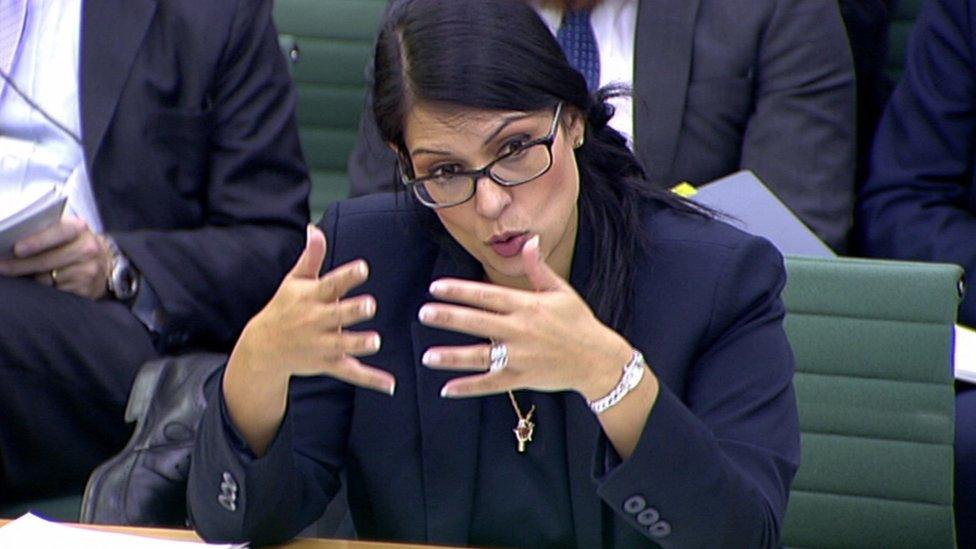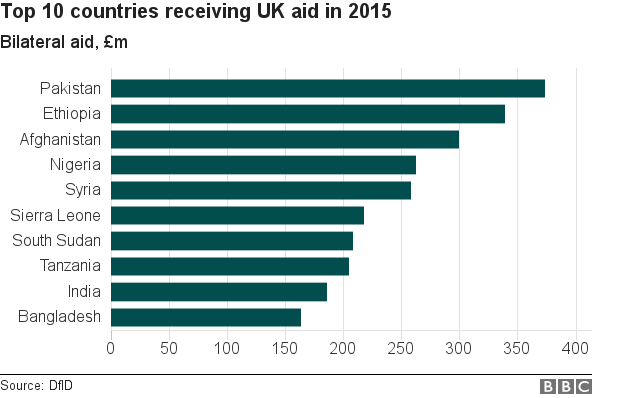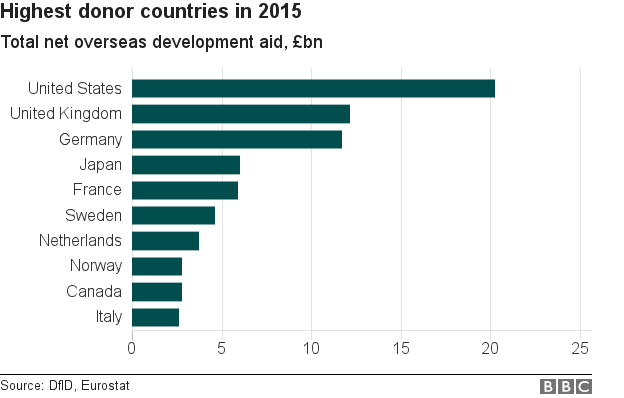Ethiopian band's funding 'under review' by UK
- Published

Priti Patel promised to ensure value for money
The UK government's funding for an "Ethiopian girl band" has been placed "under review", the international development secretary has announced.
Priti Patel promised MPs she would work to ensure taxpayer "value for money", after reports the group Yegna was getting £5.2m.
She added that there were "many other ways" to deal with issues like forced marriage and violence against women.
But the government could not "vacate the pitch", Ms Patel said.
Ministers have promised to keep spending at least 0.7% of national income on aid, but some Conservative MPs have said the money should go instead into funding adult social care in the UK.
The Daily Mail reports that Yegna, a five-member band, has been provided with £5.2m to develop its "branded media platform", as part of a project aimed at changing perceptions of women in the country.
Yegna, founded in 2013, works to encourage "positive behaviour change for girls in Ethiopia" and is part of the Girl Effect project, which was created by the UK's Department for International Development and the Nike Foundation in 2011.
It uses storylines and music to tackle gender-based violence, reduce the proportion of girls who marry or give birth before the age of 18, increase the proportion of girls who complete primary school and go to secondary school and increase the number of girls "with control over economic assets".
During a hearing of the International Development Committee, Conservative MP Nigel Evans asked Ms Patel about the wording of Department for International Development (DfID) literature.
He said: "It says that you wish to build a diverse, resilient and effective civil society in the developing world. What aspect of the Ethiopian girl band does that fit into?"
Ms Patel replied: "I think it's fair to say, when it comes to a country like Ethiopia, it's a hugely challenged country - we can all recognise that."
She added: "Alongside that, there are many issues relating to violence, women, rights of individuals that need support and need addressing.
"And clearly the programme which you are referring to, Mr Evans, is just one component of that, one component of a wider matrix of not just DfID investment but international investment in Ethiopia, in the civil society but also on that rights base, as well."

Mr Evans then said: "I have been to Addis Ababa and I've seen women carrying eucalyptus down very steep hills in order to sell them for firewood. So there's a lot of poverty there. Do you not believe the money coming from our department could be better spent?
"Secretary of state, I've known you for many years. Your blood must have been boiling when you read that story."
Ms Patel said: "I completely understand and recognise the fact that you can't vacate the pitch when it comes to supporting women and some very, very substantial issues relating to their wellbeing, their rights and all the things that matter and should matter when it comes to living in a civilised society."
But she added: "I think specifically, though, when it comes to this specific programme, there are clearly many, many other ways in which one can make sure that we are making those advancements.
"That is just one programme, one project and I think it's fair to say that all programmes are under review." Ms Patel said, to ensure "taxpayer value for money".

Speaking about her department's work more generally, Ms Patel said there were "areas that I would like to personally show some leadership in".
She suggested these could include family planning and "disability in conflict", adding: "We are, every single day, pained by what we see... people being harmed. Disability is another component of that."
She also said: "We look at everything within the round." She added: "We make sure that every single penny is to encourage those outcomes."
The Department for International Development rejected a report in The Times claiming it was "dumping" billions of pounds into World Bank trust funds in an attempt to meet the 0.7% target.
It said the World Bank had the "reach and expertise to reduce poverty around the world" but that the UK was challenging it to "work harder and smarter".